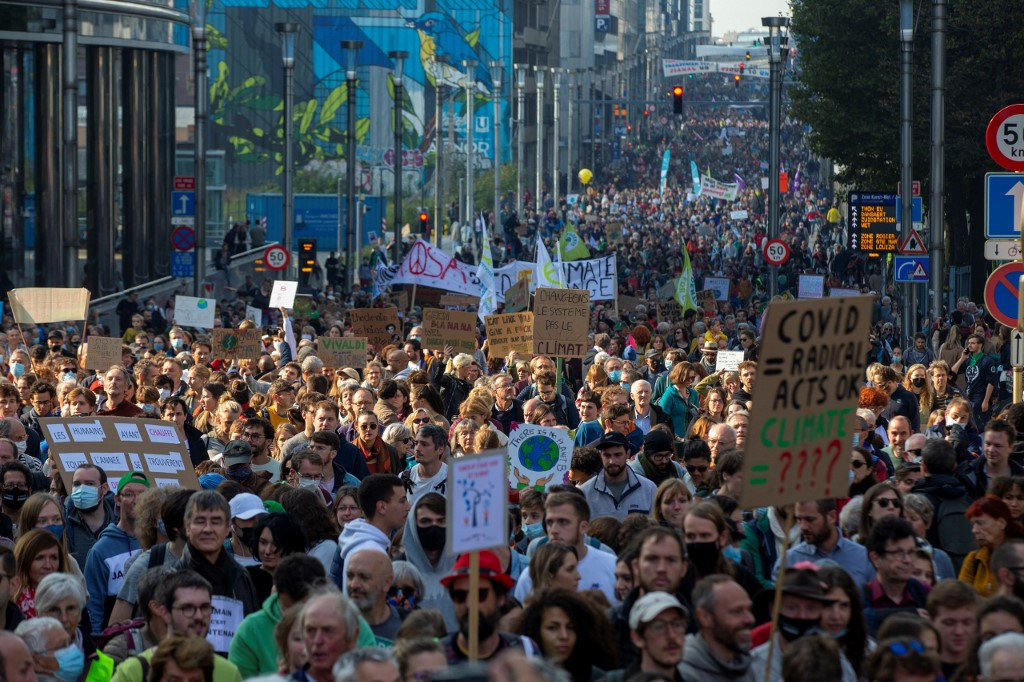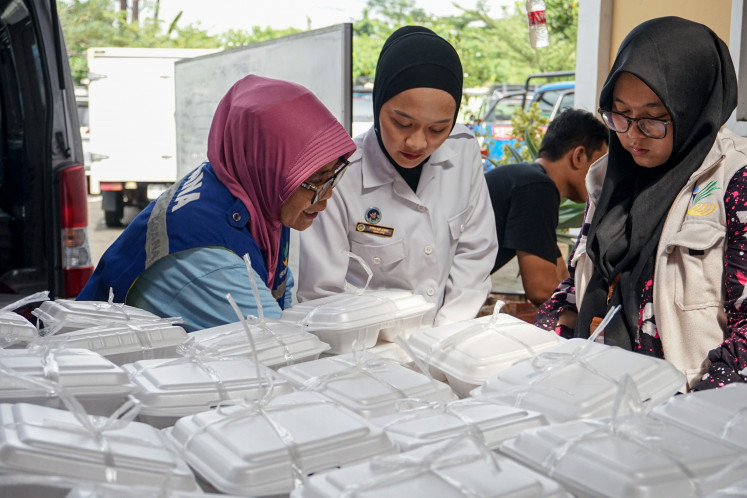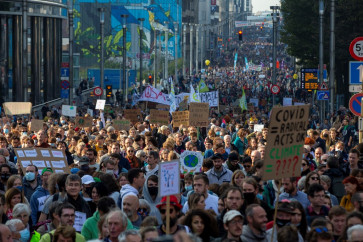Popular Reads
Top Results
Can't find what you're looking for?
View all search resultsPopular Reads
Top Results
Can't find what you're looking for?
View all search resultsOpportune time for Jokowi to advocate for climate justice
An ethically correct agenda for climate change action has to incorporate development needs and basic human rights.
Change text size
Gift Premium Articles
to Anyone

The end of October of this year marks a critical juncture for President Joko “Jokowi” Widodo on the global stage, as he will assume the presidency of the Group of Twenty (G20) nations, an international forum whose members account more than 80 percent of world’s gross domestic product (GDP) and 60 percent of the planet’s population.
The event is even more momentous as it precedes another fateful event, the 26th conference of parties (COP26) to the United Nations Framework Convention on Climate Change (UNFCCC) from Oct. 31 to Nov. 12 in Glasgow, the United Kingdom. Historically, despite skepticism about the concrete outcome of the G20 Summit and the COP, the events are seen as avenues for building global commitments to development and the environment. Further, such events can be capitalized upon to enhance the contributions of the G20 presidency to the agenda of global climate change action.
More importantly for Indonesia, President Jokowi must take charge to drive a change in discourse and introduce a new platform on climate and sustainability justice, a term to describe a focus on fair distribution of sustainability benefits and burdens and one that frames climate change as an ethical issue.
An ethically agenda for climate change action has to incorporate development needs and basic human rights through a three-pronged approach. The first is that climate change action needs to address the highest emitter, the energy sector, rather than avoiding it. Second, emissions caps and reduction plans must be based on emissions targets per capita. Lastly, the needs and aspirations of developing nations for economic growth must be respected, and the urge to interfere in other countries’ climate agendas must be controlled.
Currently, sustainability issues and the agenda of climate change are driven and set by developed countries in the name of global climate change mitigation. As a result, the agenda setting has been lopsided to protect the interests of the rich countries, while putting poor and developing countries on the receiving end of certain issues.
Perceptions on the source of carbon dioxide emissions attributed to climate change have been dominated by environmental issues occurring in developing countries, such as deforestation, which is seen as the key driver of global warming. The issue of forest conversion into oil palm plantations, agricultural areas and livestock ranches has become a staple of the media frenzy leading to the anti-palm oil movement. This has distorted the real fact that the main contributor of climate change is emissions from the energy sector.
The World Resource Institute (WRI) reported that the energy sector, including electricity, transportation, manufacturing, construction and other fossil fuels, accounting for 70 percent of total global emissions, is the largest contributor to greenhouse gas emissions. Ironically, no large-scale campaign exists advocating for curbing the production or use of crude fossil fuels or caps on natural gas, etc.


















